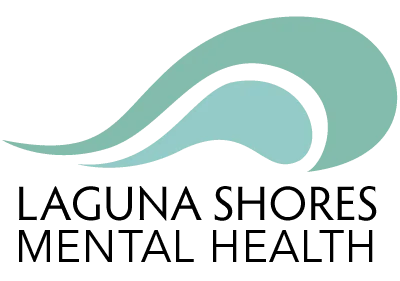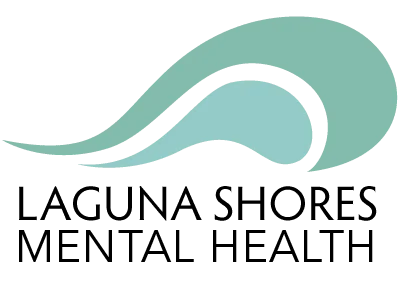Dialectical Behavior Therapy in Orange County
At Laguna Shores Mental Health in Orange County, we understand that navigating intense emotions and challenging life circumstances can feel overwhelming. If you find that your emotions are controlling your life, impacting your relationships, or leading to behaviors you later regret, you are not alone. Many individuals in our community seek healing but need the right tools to achieve it. Dialectical Behavior Therapy (DBT) is a highly effective, evidence-based treatment designed specifically to help people build a life worth living. Explore how our DBT program for mental health in Orange County can provide you with the skills for lasting emotional resilience and well-being.

Dialectical Behavior Therapy (DBT) is a type of therapy that helps treat mental health conditions characterized by emotional dysregulation. The term “dialectical” refers to the core philosophy of the therapy: finding a balance between two seemingly opposite concepts: acceptance and change. DBT teaches patients to accept their current reality and emotional experiences without judgment while simultaneously working to change unhelpful behaviors and develop healthier coping skills.
This powerful balance is what sets DBT apart, as it validates a person’s struggles while empowering them to make positive changes. It is a practical, skills-based approach that moves beyond simply talking about problems to actively building competencies for managing life’s challenges. At its heart, DBT is designed to help people move from a state of unbearable emotional pain to one of control, stability, and fulfillment.
Core Principles
and Components of DBT
DBT is built on a multifaceted framework that ensures comprehensive care. The treatment is typically delivered through four main components that work together to support recovery, creating a robust system of support for individuals on their path to healing.
Skills Training Groups is a type of group therapy that forms the educational backbone of the DBT program, functioning like a classroom for essential life skills. In this structured group setting, participants learn and practice four key skill sets: mindfulness, distress tolerance, emotion regulation, and interpersonal effectiveness. This format allows individuals to learn from a trained therapist and practice new behaviors with peers in a supportive environment, which helps to reduce feelings of isolation by showing participants they are not alone in their struggles
Individual psychotherapy provides a private, one-on-one setting to personalize the recovery process and apply learned skills directly to personal challenges. During these weekly sessions, the therapist and patient work collaboratively to address specific behaviors that interfere with quality of life, using tools like a daily diary card to track progress. The primary focus is on enhancing motivation, troubleshooting obstacles, and tailoring the DBT skills to fit the patient’s unique life circumstances and goals, ensuring the therapy remains highly relevant and effective.
In-the-Moment Phone Coaching is a unique feature of DBT that provides critical real-time support between scheduled sessions. This component allows patients to contact their therapist for brief guidance when facing an immediate crisis or a strong urge to engage in harmful behaviors. The goal is to help individuals generalize their skills, meaning they learn to use them effectively in the exact moment they are needed most, rather than just within the safety of the therapy office, which is crucial for breaking automatic, unhelpful behavior patterns.
The Therapist Consultation Team is a dedicated component designed to support the clinicians providing DBT, ensuring they offer the highest standard of care. This team, often described as “therapy for the therapists,” meets regularly to discuss cases, adhere to the DBT model, and provide mutual support and clinical guidance. By preventing therapist burnout and promoting adherence to the treatment model, this team ultimately ensures that patients receive consistent, effective, and compassionate care throughout their entire therapeutic journey.
What To Expect
During a DBT Session
Embarking on DBT at Laguna Shores means committing to a structured and proactive form of therapy. A typical week in our program involves two main types of sessions: an individual therapy session and a skills training group session. Your individual session is a private, one-on-one meeting with your primary DBT therapist. Here, the focus is on you and your specific journey. You will work together to address behaviors that interfere with your quality of life, using a daily diary card to track your emotions, urges, and skill use. This allows you and your therapist to pinpoint challenges and collaboratively problem-solve how to apply DBT skills effectively.
The skills group session is more educational and is conducted with a small group of peers. It’s important to note that this is not a traditional process group; the emphasis is on learning and practice, not on sharing detailed personal histories. Additionally, your therapist will be available for brief phone coaching between sessions to help you navigate difficult situations as they arise. This combination of individual attention, group learning, and real-time coaching creates a comprehensive therapeutic experience designed for tangible progress.
Benefits of DBT for
Mental Health Treatment
The benefits of participating in a DBT program at Laguna Shores extend far beyond symptom reduction, fostering a comprehensive transformation that leads to a life worth living. By building core competencies in emotional and interpersonal regulation, individuals gain the practical tools needed to navigate life’s challenges with resilience. Key benefits of this evidence-based approach include:
- Reduced Emotional Crisis and Increased Stability: DBT directly targets emotional dysregulation, which is often at the root of mental health struggles. Patients learn concrete distress tolerance and emotion regulation skills to manage intense feelings without becoming overwhelmed. This leads to fewer emotional crises and a greater sense of daily stability.
- Improved Interpersonal Relationships: The therapy specifically teaches interpersonal effectiveness skills, such as how to set boundaries, communicate needs clearly, and resolve conflicts healthily. This helps repair relationships damaged by past behaviors and build a stronger, more reliable support network. Healthier relationships are a cornerstone of long-term well-being.
- Development of Mindfulness Practices: A core module of DBT, mindfulness teaches individuals to live in the present moment without judgment. This skill is crucial for breaking automatic, impulsive reactions to stressful thoughts or situations. Increased mindfulness allows individuals to pause, observe their urges, and choose a more effective response.
- Effective Management of Co-occurring Disorders: Because DBT is designed for complex conditions, it is highly effective in treating multiple mental health issues simultaneously, such as depression, anxiety, and PTSD. The skills provide a unified approach to managing different challenges that often interact. This integrated treatment leads to more sustainable and holistic recovery outcomes.
- Decrease in High-Risk Behaviors: DBT provides specific tools for managing self-destructive urges and impulses without acting on them. Individuals learn to tolerate distress and survive crisis situations without resorting to self-harm, substance use, or other harmful behaviors. This creates a foundation of safety that is essential for deeper therapeutic work.
Finding a DBT Therapist or
Program in Orange County
Finding a qualified DBT program is crucial for a successful therapeutic experience. When searching in Orange County, it is important to look for providers who offer full-model, or comprehensive, DBT, which includes all four components: individual therapy, skills group, phone coaching, and a therapist consultation team.
Laguna Shores Mental Health is proud to offer an authentic, comprehensive DBT program right here in Orange County. Our team consists of licensed clinicians who have received specialized training in DBT and are committed to adhering to its evidence-based principles. We are dedicated to creating a validating and challenging environment where healing and change can occur. If you are considering DBT, we encourage you to contact our admissions team. We can answer your questions, verify your insurance benefits, and help you determine if our program is the right fit for your mental health needs, providing a local resource you can trust.

Frequently Asked Questions
About DBT
Choosing a therapy path is a significant decision, and it’s natural to have questions. At Laguna Shores, we believe in transparent communication to help you feel confident and informed about your care. Below, we answer some of the most common questions we receive about Dialectical Behavior Therapy.
DBT may be an excellent fit if you struggle with intense, rapidly shifting emotions that feel overwhelming and difficult to control. It is particularly beneficial if these emotions lead to problematic behaviors that disrupt your life, such as impulsive actions, self-harm, substance use, or turbulent relationships. DBT is designed for individuals who have found other therapies insufficient because it provides the concrete skills needed to manage emotional chaos. A consultation with one of our clinicians can help determine if DBT aligns with your specific goals.
While initially developed for Borderline Personality Disorder (BPD), DBT has proven highly effective for a wide range of conditions. At Laguna Shores, we use DBT to treat:
- Borderline Personality Disorder (BPD)
- Depression
- Anxiety disorders
- Post-Traumatic Stress Disorder (PTSD)
It is especially powerful for treating co-occurring disorders, which is when an individual experiences more than one mental health condition simultaneously. The skills taught in DBT address the underlying issue of emotional dysregulation common across many diagnoses.
While both are forms of cognitive-behavioral therapy, they have distinct focuses. Cognitive Behavioral Therapy (CBT) primarily focuses on identifying and changing negative thought patterns that influence behavior. Dialectical Behavior Therapy (DBT), a subtype of CBT, places a stronger emphasis on accepting uncomfortable thoughts and feelings while simultaneously working to change them, and it specifically teaches social and emotional skills to manage distress and improve relationships.
In most cases, yes. Because DBT is an evidence-based treatment for medically necessary mental health conditions, many insurance plans in California provide coverage for it. Coverage details, including co-pays and deductibles, can vary based on your specific insurance provider and plan. The admissions team at Laguna Shores is experienced in working with insurance companies and can help you verify your benefits and understand your coverage before you begin treatment.
Session length depends on the component of DBT. A standard individual therapy session typically lasts between 50 to 60 minutes. Skills training groups are longer, generally lasting about 90 minutes to two hours to allow adequate time for teaching and practicing new skills. The duration of a full course of comprehensive DBT is typically around six months to a year, allowing time to cycle through all the skill modules multiple times and integrate them fully into your life.
Begin Your Healing Journey with
DBT in Orange County
If you are ready to break free from the cycle of emotional suffering and build a life grounded in purpose and resilience, Dialectical Behavior Therapy at Laguna Shores Mental Health offers a proven path forward. Take the courageous first step today and contact Laguna Shores to learn more about our DBT program in Orange County and schedule a confidential consultation.

